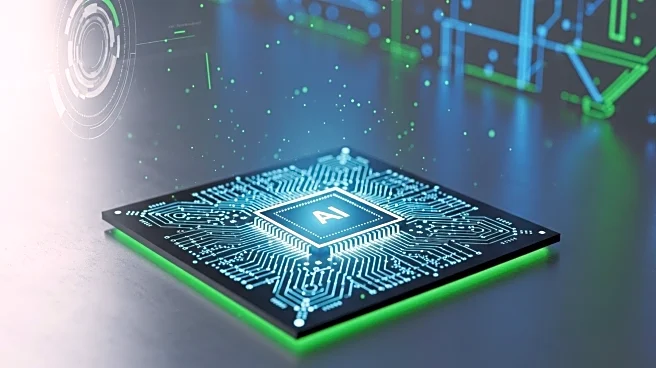What's Happening?
Root Access Inc., a New York-based company, has developed an AI-native tool aimed at assisting engineers in the embedded systems sector. The tool, known as Hideout IDE, is designed to streamline the modification of heavy machinery, robotics, and mission-critical hardware, reducing the time and effort required for these tasks. The company, co-founded by Ryan Eppley and Samarpita Chowdhury, has recently secured $2.1 million in pre-seed funding to further its development efforts. The tool allows users to validate components and configure mission-critical hardware using AI, providing a proxy of trust for engineers who may not have their own algorithms for validation. Root Access has attracted interest from major companies such as Mitsubishi, HP, Lockheed Martin, and John Deere, highlighting the demand for AI tools in the embedded systems industry.
Why It's Important?
The development of Root Access's AI tool represents a significant advancement in the field of embedded systems engineering. By reducing the time required to program hardware from weeks to days, the tool has the potential to accelerate innovation and production in industries reliant on complex machinery, such as automotive and aerospace. This could lead to faster deployment of new technologies and improvements in efficiency and cost-effectiveness. Additionally, the tool's ability to ingest data sheets and create custom firmware could enhance the adaptability and functionality of embedded systems, providing a competitive edge to companies that adopt it. The funding secured by Root Access will enable further development and expansion, potentially influencing the broader technology landscape.
What's Next?
Root Access plans to continue developing its AI tool and expand its customer base. The company is hiring for key engineering roles to support its growth and enhance its product offerings. With strategic partnerships, such as the one with Altium, Root Access aims to integrate its tool more deeply into existing technology stacks, potentially transforming how embedded systems are developed and managed. As the company grows, it may attract further investment and partnerships, solidifying its position in the industry and driving innovation in embedded systems engineering.
Beyond the Headlines
The emergence of AI tools like Hideout IDE raises questions about the future of engineering roles and the skills required in the industry. As AI becomes more integrated into engineering processes, there may be a shift in the skill sets needed, with a greater emphasis on understanding AI systems and their applications. This could lead to changes in educational programs and professional development for engineers. Additionally, the tool's ability to streamline processes may impact job roles, potentially reducing the need for certain manual tasks while creating opportunities for more strategic and creative work.









